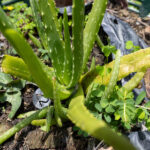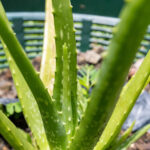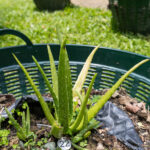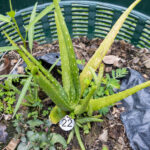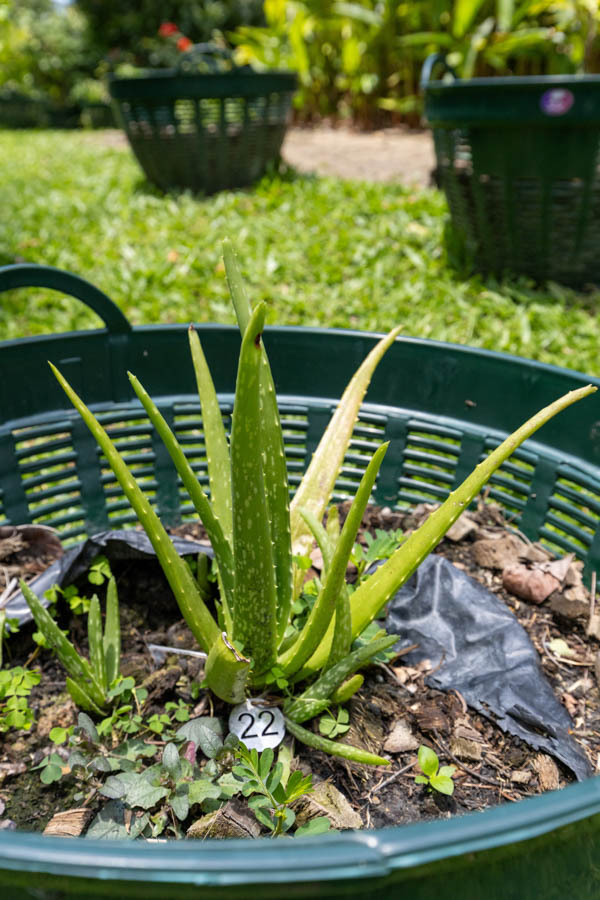ว่านหางจระเข้ (Wan Hang Jorakhe) – Aloe vera
Family: Asphodelaceae
Aloe vera, known in Thai as ว่านหางจระเข้ (Wan Hang Jorakhe), is one of the world’s most widely used medicinal succulents. The name literally means “crocodile tail plant,” referring to its thick, spiny leaves. Revered in Thai traditional medicine, it is cultivated both for first aid and beauty treatments.
Botanical Characteristics
This hardy perennial has fleshy green leaves arranged in a rosette, filled with a clear cooling gel. Small white spots appear on younger leaves, which fade as the plant matures. It produces yellow or orange tubular flowers on tall spikes under the right conditions. Aloe grows easily in containers and requires minimal care.
Use in Thai Traditional Medicine
The gel extracted from the leaves is applied to burns, insect bites, and skin irritations to promote healing and reduce inflammation. Taken internally in small quantities, it acts as a digestive aid, helps detoxify the body, and supports liver health. In Thai folklore, aloe is also a protective plant placed near homes to ward off bad energy.
Modern Applications
Aloe vera is used in skincare, hair treatments, and natural health supplements worldwide. Scientific studies confirm its antibacterial, antioxidant, and wound-healing properties. It’s a common base ingredient in natural cosmetics and herbal tonics.
Cultivation Notes
The plant thrives in full sun with well-drained soil. Water sparingly, allowing the soil to dry between watering cycles. Aloe reproduces through offsets, which can be separated and replanted. Overwatering should be avoided as it causes root rot.
Historical Context
Used for over 2,000 years in Egyptian, Indian, and Thai medicine, Aloe vera was known as the “plant of immortality.” In Thailand, it remains one of the most accessible and versatile healing plants, bridging the gap between traditional remedies and modern herbal science.
Disclaimer: This information is provided for educational and historical purposes only. It is not intended as medical advice. Always consult a qualified healthcare professional before using any herbal preparation.

